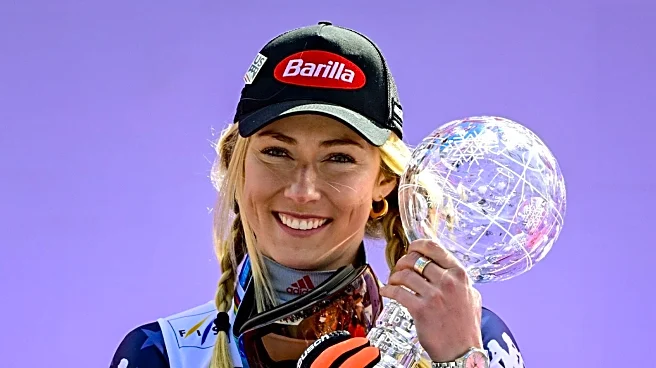Rapid Read • 9 min read
A new book titled 'The Origin of Language' by Madeleine Beekman, a professor emerita of evolutionary biology and behavioral ecology, proposes a novel theory that the evolution of human language was driven by the demands of child-rearing. Beekman argues that the need for effective communication to care for vulnerable offspring may have been a significant factor in the development of language. This perspective challenges traditional evolutionary theories that focus on male-dominated activities such as hunting and toolmaking. Beekman suggests that early humans developed vocal communication to better manage the needs of their children, which in turn enhanced survival rates. The book explores the biological changes that facilitated language development, such as the elongation of vocal cords and the growth of the human brain, and posits that language evolved as a tool for cooperation and communication primarily centered around offspring care.
AD
The theory presented in Beekman's book highlights the role of familial care in human evolution, offering a shift from traditional views that emphasize competition and aggression. This perspective underscores the importance of cooperation and interdependence in the survival and development of the human species. By focusing on child-rearing as a catalyst for language evolution, the book suggests that nurturing and caregiving have been central to human progress. This insight could influence current societal views on parenting and communal child-rearing, advocating for a return to more cooperative approaches. Understanding the origins of language through the lens of caregiving may also impact educational and social policies, emphasizing the value of nurturing environments for child development.
The book's publication may spark further academic debate and research into the role of caregiving in human evolution. Scholars and researchers might explore additional aspects of human development influenced by parenting and communal care. This could lead to interdisciplinary studies that integrate evolutionary biology, anthropology, and psychology to better understand the complexities of human social structures. Additionally, the book may inspire discussions on modern parenting practices, encouraging a reevaluation of isolated child-rearing in favor of more community-oriented approaches.
Beekman's theory invites a reconsideration of the historical and cultural significance of caregiving in human societies. It challenges the notion of individualism in parenting, suggesting that communal efforts have historically been crucial for survival. This perspective may lead to broader discussions on the ethical and cultural dimensions of parenting, potentially influencing how societies structure support systems for families. The book also raises questions about the long-term impacts of isolated parenting on social cohesion and community building.
AD
More Stories You Might Enjoy











